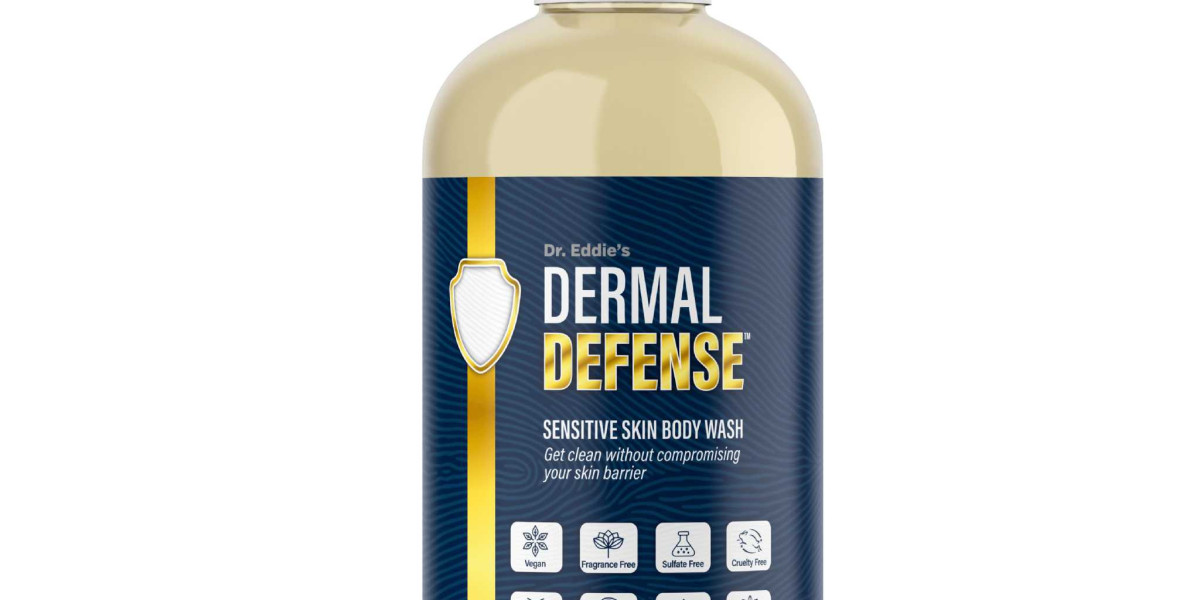Eczema can be an irritating and uncomfortable skin condition, especially when it affects sensitive areas like the shoulders. The skin on your shoulders may seem tough, but it’s actually quite sensitive to environmental factors, stress, and other triggers. In this article, we'll dive deep into the causes, symptoms, and treatment options for eczema on shoulders and explore how to manage skin sensitivity to keep flare-ups at bay.
Understanding Eczema
What Is Eczema?
Eczema, also known as atopic dermatitis, is a condition where the skin becomes inflamed, red, and itchy. It can appear anywhere on the body, but the shoulders are particularly vulnerable due to the thinness and sensitivity of the skin in that area. Eczema can manifest in many forms, such as patches of dry skin, blistering, or scaly skin, and it’s often triggered by an allergic reaction or environmental factors.
Symptoms of Eczema on Shoulders
When eczema affects the shoulders, the symptoms are often a combination of intense itching, redness, and dryness. You may notice patches of skin that become inflamed or flaky, sometimes even oozing fluid if scratched too much. The shoulders are susceptible to these flare-ups because the skin in this area is often exposed to friction from clothing, sweat, or even the sun, all of which can aggravate eczema.
Common Triggers of Eczema
Several factors can trigger eczema flare-ups on the shoulders, including:
Allergens like dust mites or pollen
Irritants like harsh soaps, chemicals, or fragrances
Dry weather or sudden temperature changes
Sweating from physical activity
Tight clothing or synthetic fabrics
Understanding these triggers can help you take proactive steps to reduce flare-ups.
Why Are the Shoulders Affected?
Sensitivity of Shoulder Skin
While the skin on your shoulders may feel tough, it’s actually more sensitive than it appears. The shoulder area is often exposed to a lot of environmental elements, such as sun, wind, and sweat, which can exacerbate conditions like eczema. The skin in this region doesn’t have as much natural protection compared to other areas, which makes it more prone to irritation.
Impact of Tight Clothing on Eczema
Another reason the shoulders are commonly affected by eczema is due to friction from tight clothing. Whether it's a bra strap, tight shirts, or a backpack strap, the pressure and constant rubbing can break the skin’s barrier, leading to flare-ups. It’s important to choose soft, loose-fitting clothing that doesn't rub against the skin to avoid irritating the eczema further.
The Role of Skin Sensitivity
How Sensitive Skin Affects Eczema
People with eczema often have more sensitive skin overall, which makes them more prone to flare-ups. This sensitivity is due to a weakened skin barrier that doesn't lock in moisture as effectively as healthy skin does. As a result, the skin becomes more susceptible to irritants, allergens, and environmental stressors, leading to eczema on sensitive areas like the shoulders.
Environmental Factors and Skin Sensitivity
Your environment plays a huge role in your skin’s sensitivity. Dry air, especially during the winter, can strip the skin of its natural oils, making it more vulnerable to irritation. Pollution, allergens, and even household cleaning products can aggravate sensitive skin, causing an eczema flare-up on the shoulders or other parts of the body.
How Stress Influences Skin Sensitivity
Stress is another key factor that can worsen eczema. Emotional stress can trigger a release of chemicals in the body that make the skin more reactive. The shoulders are especially vulnerable in times of stress since they tend to carry a lot of tension, which can result in skin flare-ups.
Treatment Options for Eczema on Shoulders
Topical Treatments for Eczema
The most common treatments for eczema on shoulders are topical, like corticosteroid creams or ointments, which can help reduce inflammation and itching. However, it’s important to use these medications as prescribed to avoid side effects like thinning of the skin. Non-steroidal topical treatments, such as tacrolimus, can also be used if steroids are not effective.
Moisturizing Cream: A Must for Sensitive Skin
A key part of managing eczema on shoulders is consistent moisturizing. Dry skin can trigger eczema flare-ups, so it’s crucial to keep the skin well-moisturized. A high-quality moisturizing cream, especially one designed for sensitive skin, can help lock in moisture, strengthen the skin barrier, and prevent dryness. Look for creams that contain ingredients like ceramides or hyaluronic acid for maximum hydration.
Natural Remedies for Eczema Relief
In addition to medical treatments, some natural remedies can provide relief. Aloe vera gel, for example, has soothing properties that can reduce redness and inflammation. Coconut oil is also a popular choice for moisturizing the skin and reducing dryness. While these remedies can help soothe symptoms, they should be used alongside other treatments for the best results.
Preventing Eczema Flare-Ups on the Shoulders
Managing Skin Sensitivity Effectively
One of the most important ways to manage eczema on your shoulders is by managing your skin’s sensitivity. This means avoiding known irritants, keeping your skin moisturized, and protecting it from harsh weather conditions. Wearing soft, breathable fabrics like cotton can help minimize friction and irritation.
Lifestyle Changes for Better Skin Health
Adopting a healthier lifestyle can also benefit your skin. A balanced diet rich in omega-3 fatty acids, such as salmon or flaxseeds, can help reduce inflammation. Staying hydrated, getting plenty of rest, and reducing stress through relaxation techniques like yoga or meditation can also have a positive impact on your skin.
Importance of Consistent Moisturization
As mentioned earlier, moisturizing is key to managing eczema. It’s essential to keep your skin hydrated throughout the day, not just when you feel a flare-up coming on. Applying a good moisturizer immediately after bathing can lock in moisture, preventing the skin from becoming too dry and itchy.
When to Seek Medical Advice
Recognizing Severe Eczema Symptoms
If you notice that your eczema is spreading or worsening despite using over-the-counter treatments, it may be time to consult a healthcare professional. Symptoms like persistent redness, swelling, or pain should not be ignored, as they may indicate a secondary infection or a more severe flare-up.
When to Consult a Dermatologist
A dermatologist can help you develop a personalized treatment plan tailored to your specific skin type and eczema severity. If home remedies and over-the-counter products aren’t providing relief, a dermatologist can offer stronger treatments or prescribe specialized medications.
Conclusion
Eczema on the shoulders can be a frustrating condition, but understanding the causes, symptoms, and treatment options can help you manage it effectively. By recognizing triggers, maintaining a consistent skincare routine, and seeking medical advice when necessary, you can reduce flare-ups and improve your skin’s health. Remember, your skin’s sensitivity plays a major role in eczema, so being mindful of environmental factors and stress can go a long way in preventing future outbreaks.
Frequently Asked Questions
Can eczema on the shoulders be caused by stress?
Yes, stress is a common trigger for eczema flare-ups, including on the shoulders, due to its effect on skin sensitivity and inflammation.What is the best moisturizing cream for eczema?
Look for creams containing ceramides, hyaluronic acid, or colloidal oatmeal, as they help repair the skin barrier and lock in moisture.Are natural remedies effective for treating eczema?
While natural remedies like aloe vera and coconut oil can soothe symptoms, they should be used alongside medical treatments for the best results.Can tight clothing cause eczema flare-ups?
Yes, tight clothing can create friction, which can irritate the skin and trigger eczema flare-ups, especially on the shoulders.When should I consult a dermatologist for eczema on my shoulders?
If your eczema becomes severe, persistent, or unresponsive to over-the-counter treatments, it’s a good idea to consult a dermatologist for further evaluation and treatment.








